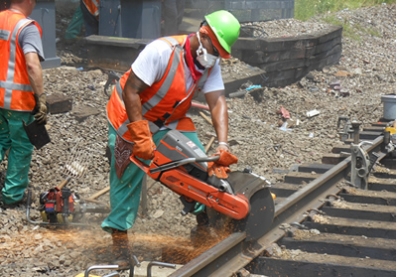
Africa’s future lies in its ability to generate its own finance to develop the infrastructure needed to eradicate poverty and promote economic transformation. Despite the various benefits of infrastructure development, West African countries and the rest of Africa suffer from poor investment in the sector. But Africa has the resource base to support the development and implementation of viable domestic finance instruments, Prof. Emmanuel Nnadozie, Executive Secretary of the African Capacity Building Foundation, said at a recent dialogue session held in Accra, Ghana, and organized by the National Institute of Legislative Studies, based in the Nigerian capital, Abuja.
Youth and unemployment
Africa has a youth bulge that could either become a demographic dividend or demographic trouble. Unemployment and poverty are the greatest challenge, coupled with a historically unprecedented rate of urbanization driven neither by a green nor industrial revolution. Creating two million jobs a year for the 200 million young people in Africa will not happen without structural transformation based on massive industrialization and agricultural revolution.
“Neither industrialization nor agricultural revolution will take place without massive investment in infrastructure—electricity, railroads. Infrastructure has been responsible for more than half of Africa’s recent improved growth performance and has the potential to contribute even more in the future. Infrastructure development in Africa can raise GDP by 2 percent and develop the backbone for rapid industrialization, which in turn will boost the capacity to generate more domestic resources,” Prof. Nnadozie said. ”African governments finance about $45 billion through the mobilization of domestic resources and regional financing mechanisms. There is still a financing gap of about $48 billion a year.
Electricity supply
Power is by far Africa’s largest infrastructure challenge, with 30 countries facing regular power shortages and many paying high premiums for emergency power. The infrastructure challenge varies greatly by country type—fragile states face an impossible burden and resource-rich countries lag despite their wealth.
Alternative resources for Africa
While the funding gap is huge and Africa needs to look outside, the continent could comfortably draw resources from domestic sources such as pension funds, diaspora remittances, earnings from minerals and mineral fuels, said Prof. Nnadozie. International reserves, liquidity in the banking sector, the growing private equity funds market and the potential flow from securitization of remittances offer additional avenues, he said. The potential to raise more domestic resources from tax is equally high. Tax revenue to GDP ratio is as high as 20% in some cases, he said, saying there is “no need for tax increases; only better tax administration and expansion of the tax base.
Parliaments will play a critical role
A large share of Africa’s infrastructure is domestically financed, with the central government budget being the main driver of infrastructure investment. In view of these challenges, West African and indeed African parliaments need to ensure thorough discussions and review of loans contracted by their governments. According to the Executive Secretary, they have a role to play in ratifying international agreements, including loans for infrastructure, and to effectively oversee the executive arm’s expenditure, in order to ensure optimal use of internally generated resources. “The procurement process within a country requires oversight by the legislature to minimize the incidence of corruption. This is where the functions of bodies such as the Public Accounts Committees of Parliament become critical.
“There is need to intensify efforts to transform the parliament of the Economic Community of West African States into a full-fledged legislative body that is capable of performing legislative functions like the European Parliament.”
Presently, the ECOWAS Parliament serves mainly as an advisory body, without full legislative powers. It is important that the legal framework with which the body operates should be reviewed to make it more relevant. The ECOWAS Parliament needs to prioritize infrastructure development, especially cross-national infrastructure. In this regard, the ECOWAS Parliament is expected to review the sourcing and utilization of infrastructure funds for projects undertaken by the regional body. To be able to effectively perform its functions as a regional legislative institution, Prof. Nnadozie believes there is need for capacity building of the members of the ECOWAS Parliament. The lawmakers and their supporting officials need to have appreciable knowledge of the issues and dynamics of infrastructure financing. African governments equally need to intensify efforts to ensure availability of resources for infrastructure on the continent. Among other things, they have to:
- Curtail illicit financial flows (IFF) from Africa
- Rapidly grow pension assets
- Boost mineral earnings, international reserves, and Diaspora remittances
- Extend the catchment area for mobilization of savings, expansion of the tax base and improvement of the capital markets.
- Promote domestic savings, grow the banking pool, and reach out to the large informal sector with appropriate financing instruments.
For 50 years the continent looked outside for help in building its infrastructure. It didn’t get much. Africa should continue to look for external financing but it needs to look inside more. Even when the funding is available, one important challenge the continent is facing in building its infrastructure is the serious inadequate capacity for infrastructure project preparation and management. As the premier capacity building organization in Africa, ACBF is supporting the efforts of African countries in developing and sustaining this capacity.
Source - Africa Capacity Bulletin





